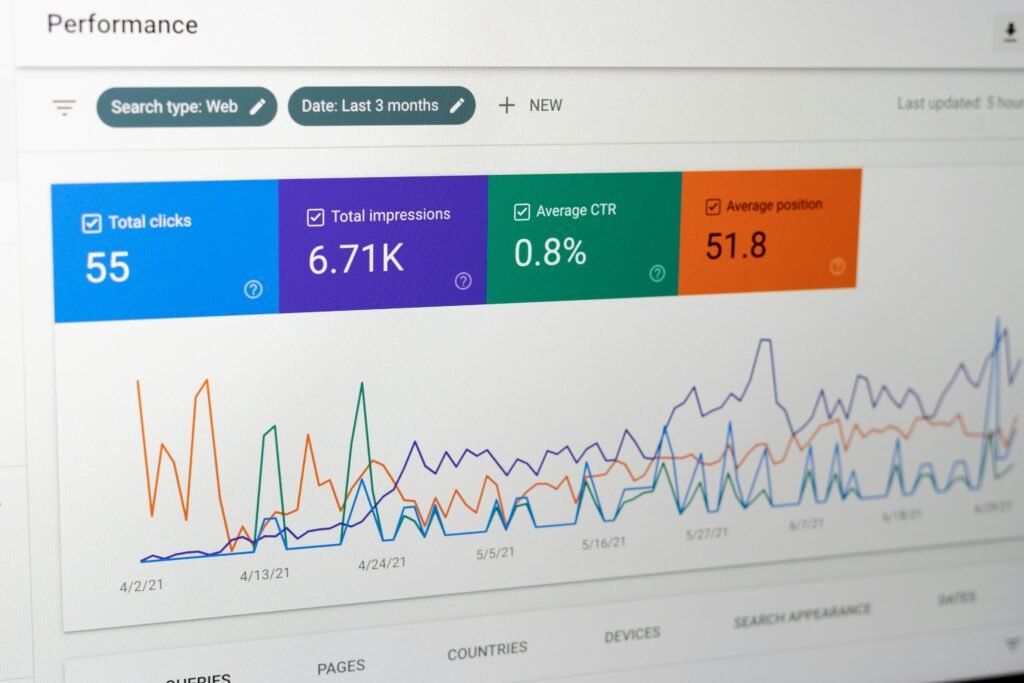According to seo. co, ranking on the top page of Google can take between three and six months, provided you’re generating decent content and optimizing your website for search engines. If there is a lot of competition or your website hasn’t been optimized, it might take six to twelve months to see the benefits.
When we talk about optimizing your website, we mean addressing the three SEO pillars: content quality, backlinks, and technical structure.
Following best practices for each of these pillars can help you rank more pages in less time. However, you must consider variables outside your control.
Let’s go deeper into the aspects that influence your website’s rating.
Factors that influence Google’s rankings
Google’s algorithm considers various aspects while determining and ranking the top web pages for each search result. Each category contains various signals that tell Google you have the information its users are looking for.
The pages that appear on the first page of Google send the majority of these signals.
Here are the various indications Google analyzes when ranking content:
Topical authority
When a website has topical authority, search engines associate it with that specific issue. Consider it a Google-focused branding endeavor. The more Google associates your domain with a specific topic, the greater your chances of ranking for keywords under that area.
Salesforce.com, for example, has established topical authority in CRMs by creating extensive literature on the subject. As a result, Google’s algorithm correlates the site with the term “CRM.” As a result, when consumers search for phrases like “What is a CRM?” and “CRM software,” Salesforce’s website consistently ranks on the first page (and sometimes even #1).

Content quality
Content quality is one of the SEO ranking variables that you may influence. When search bots crawl your website, they are not only hunting for keywords. Instead, they want to identify the finest material to deliver to their users.
In terms of writing, your material should be relevant and helpful to the user looking for the keyword. Furthermore, Google examines how the information seems and feels to the reader by assessing the quality of its structure, layout, and visual aspects.
Relevance to Search Intent
When individuals argue that material should be relevant, they’re referring to search intent. In other words, does your content address the queries that sent the consumer to Google in the first place?
People use Google for a variety of reasons, including seeking to discover a certain website, wanting to learn more about a topic, or searching to buy something.
User Experience (UX)
The overall experience on your website can influence how well individual pieces rank. Google uses measures like page speed and Core Web Vitals to compare the user experience of different domains and determine which websites to rank. Finally, it wants to locate websites with high-quality information and a quick, smooth experience.
Mobile-friendliness
Mobile search initially overtook desktop in 2017 and has continued to increase since then. As of the end of 2021, mobile devices accounted for 63% of all organic search engine visitors. In response to growing smartphone searches, Google shifted to mobile-first indexing for all new websites in July 2019.
This means that the mobile experience has a significant impact on the desktop and mobile search rankings for those sites. But, what does this mean for you?
If Google is unable to detect and crawl your mobile website, it is possible that your postings are also being disregarded on desktop searches. In addition to making your mobile website crawlable, you should increase its usability by making it quick and simple to use.
Recommended tools: Google Analytics, Google Search Console, and Google Test Mobile.
Backlinks
Backlinks are Google’s method of determining which domains and materials are authoritative on a topic.
When someone links to your page from their blog, Google receives a signal that they trust your material. The more signals you can collect from other domains, the more authoritative you are in Google’s eyes.
Ahrefs and Semrush are two highly recommended tools.
On-Page SEO
On-page SEO refers to the methods you apply to your website to help Google locate and understand your content. On-page methods involve creating high-quality material for both people and search engine crawlers. Several particular tactics include developing an internal linking strategy (including anchor text), monitoring for technical concerns and opportunities (such as broken links), applying schema, and optimizing pictures and image alt text.
Including keywords in your metadata (such as title tags and headers) provides Google with additional insight about your content. When the computer knows your material, it becomes simpler to match it to relevant search queries.
Recommended tools: Google Search Console & Screaming Frog

How to Increase Your Chances of Ranking Quickly
As previously stated, you have no control over how long your content takes to rank or where position Google places you in. However, if you continuously adhere to SEO and content marketing best practices, you will enhance your chances of reaching the top of Google faster.
Here are some tangible strategies you can take to improve your SEO strategy and accelerate growth.
Create information on connected themes.
If you need assistance changing bathroom tiles, you can rely on specific brands, such as Home Depot and Lowe’s. When it comes to residential projects, both of these companies have established authority. As an SEO marketer, you want Google to be able to do the same for your domain. To accomplish so, you must establish topical authority.
This helps Google understand the topics linked with your brand and better determine your areas of expertise. You can gain topical authority by publishing content on your brand’s main product or service.
Optimize your website for mobile search.
As previously stated, as of July 2019, Google has been employing mobile-first indexing for all new websites, with its engine crawlers prioritizing the mobile experience when ranking search results.
To rank your content, Google must be able to discover the mobile version. Not only that, but your mobile experience should be as intuitive and complete as your website’s desktop UX. Many of the recommended practices for mobile search come under the category of technical SEO. However, it is still important to understand that if Google cannot detect your mobile material, your chances of ranking will suffer.
Google’s Mobile-Friendly test can help you determine how mobile-friendly your website is.
To increase cell SEO, WordPress users should utilize responsive themes and plugins that ensure visitors to their website receive the version that is appropriate for their device.
Seek backlink opportunities.

Building your backlink profile boosts your exposure and convinces Google that your website is authoritative and trustworthy. While backlinks are an important aspect of any SEO plan, they are technically outside your control. However, you can take action to improve your chances of getting referenced on other sites.
You might begin by seeking guest posting opportunities on other websites and incorporating backlinks in your post or author bio.
In addition to authoring articles, you can participate in webinars or interviews for other companies you work with, such as clients or suppliers. In exchange for your participation, you will typically be given a connection to your website. Remember, other content authors must establish knowledge, authority, and trustworthiness by citing credible sources and gathering facts to back up their statements.
If you can give these resources, you can increase the amount of backlinks to your domain. In other words, you can help yourself by creating material that benefits others.
Examples of citable content are:
- Interviews with professionals and thinking leaders
- Industry statistics summaries
- Keyword definitions
- Studies/reports
- Infographics
- Surveys
- Charts
Final thoughts: How long does it take to rank on Google using SEO techniques?
SEO is a fantastic investment for many businesses. As a marketing channel, it generates great returns even after you click publish. But how long should you expect to wait before seeing results?
Finally, it depends on your industry and the amount of competition for your keywords. SEO content often takes many months to a year to break even.
The good news is that you may take actions to increase your search position faster by understanding Google’s signals and tweaking your website and content appropriately.





